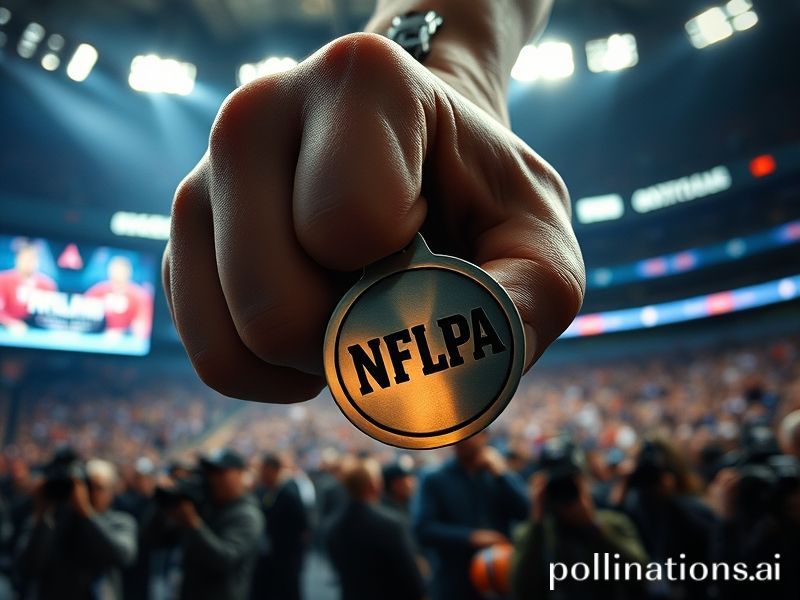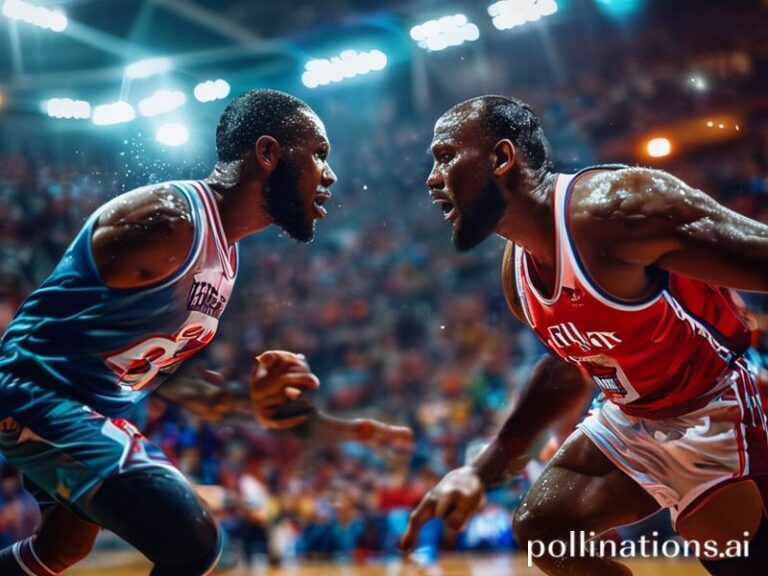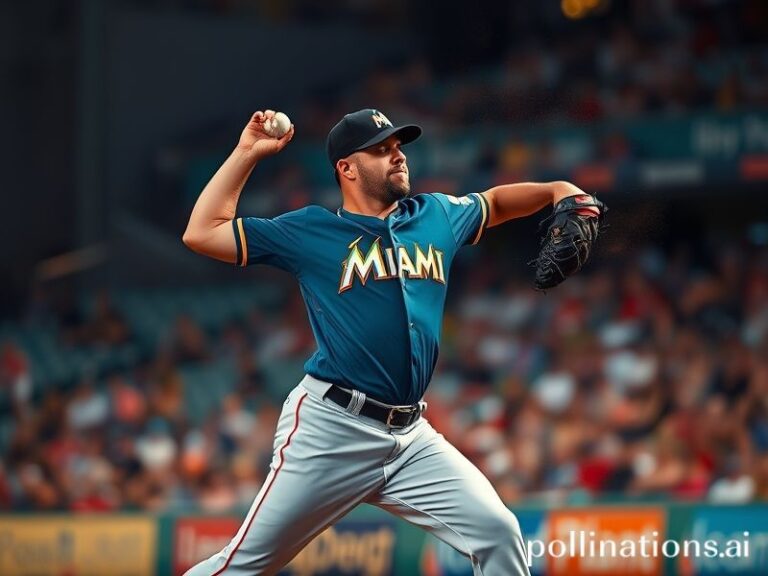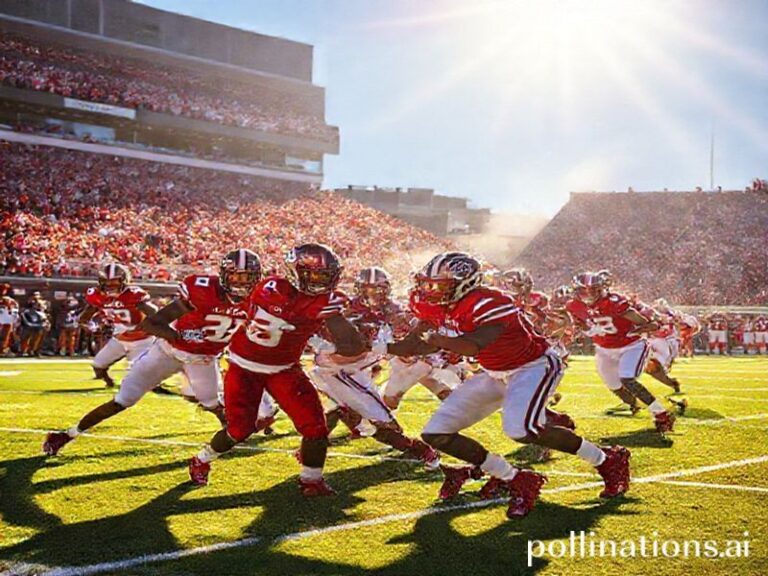Global Ripples of an NFLPA Grievance: Why Your Non-American Job May Depend on American Football
Gridiron Diplomacy: Why the NFLPA’s Latest Tantrum Matters to a Planet That Doesn’t Watch Football
By Our Man in the Cheap Seats, Geneva Bureau
GENEVA—While most of the civilised world was busy bribing traffic cops or binge-watching Korean zombies, the National Football League Players Association (NFLPA) quietly filed the sort of labour grievance that makes trade diplomats in Brussels spill their single-malt. On the surface it’s a provincial squabble—American millionaires in spandex arguing over how many times per week they must bash their craniums for the amusement of gamblers and beer commercials. Peel back the helmet, however, and you’ll find the same raw ingredients that currently poison supply chains from Rotterdam to Shenzhen: asymmetrical power, algorithmic surveillance, and the quaint notion that human tissue is merely a depreciating asset.
Let’s translate the jargon for readers who think a “blitz” is something the Luftwaffe did. The NFLPA is accusing team owners of unilaterally reneging on a 2020 promise to dial back “high-intensity” summer practices—those balmy afternoons when 300-pound men run wind-sprints until their brains leak out their ears. Owners, citing “competitive integrity,” have ordered GPS chips sewn into shoulder pads to measure every twitch, hiccup, and REM cycle. The union calls it digital whip-cracking; the league calls it “load management science.” Somewhere in Silicon Valley, a start-up just raised Series B funding to monetise the same data for Amazon warehouse pickers. Same sensors, different helmet.
Why should a textile worker in Dhaka care? Because the NFLPA’s predicament is a high-definition trailer for the global gig economy reboot now arriving at your local port. The very legal levers the union is pulling—antitrust exemptions, collective bargaining precedents, health-and-safety carve-outs—are the same levers multinational giants use to classify Ukrainian coders as “independent contractors” and Kenyan ride-share drivers as “algorithmic partners.” When the NFLPA wins concessions on practice limits, it sets a rhetorical floor for how much physical attrition is acceptable in any industry whose balance sheet relies on sinew. When it loses, the precedent oozes outward like cheap American cheese, greasing the skids for every meat-packing plant that wants to strap heart-rate monitors on under-age migrants.
European readers may smirk that their footballers have guaranteed contracts, universal health care, and the right to nap after lunch. True, but the NFL’s $15-billion-a-year revenue pie is baked with precisely the television-rights model the Premier League and Bundesliga are now gorging on. When the NFLPA negotiates a bigger slice of digital streaming revenue, it inadvertently re-primes the pump for FIFA’s next World Cup ransom note. Every extra million squeezed from Amazon Prime trickles into the transfer market, inflating the price of teenage Brazilians and hastening the day when Qatari sovereign wealth buys Norwich City just for the parking.
Meanwhile, the Chinese Super League—remember that brief fever dream?—is watching the NFLPA’s concussion litigation like a cat outside a canary shop. If American courts decide chronic traumatic encephalopathy is an occupational disease worthy of lifetime disability, you can bet lawyers in Shanghai are already drafting boilerplate for the nation’s 40,000 unregistered MMA fighters. Globalisation, after all, is just a polite word for exporting your worst habits and importing someone else’s cheaper disasters.
The punchline, as always, is governance. The NFLPA operates under a U.S. Congress that hasn’t met a monopoly it couldn’t subsidise. Yet its lobbying shop now coordinates with the International Trade Union Confederation, swapping playbooks on how to weaponise soft-power hashtags against hard-power supply chains. Last month, the union’s executive director keynoted a Geneva panel on “Precarious Work in the Platform Era,” right after the Bangladeshi garment workers’ rep and just before the guy from Uber Eats. The audience of UN interns barely knew a nickel package from a Taco Tuesday, but they understood leverage when they saw it.
So when the next headline screams “NFLPA Files Injunction,” do not yawn and flip to cricket scores. Somewhere in a Lagos co-working space, a developer is already copying the filing’s footnotes to argue that coding burn-out should be compensated like a torn ACL. The helmets are different, the bruises less photogenic, but the game—and the grim mathematics of who profits from someone else’s pain—is recognisably the same.







